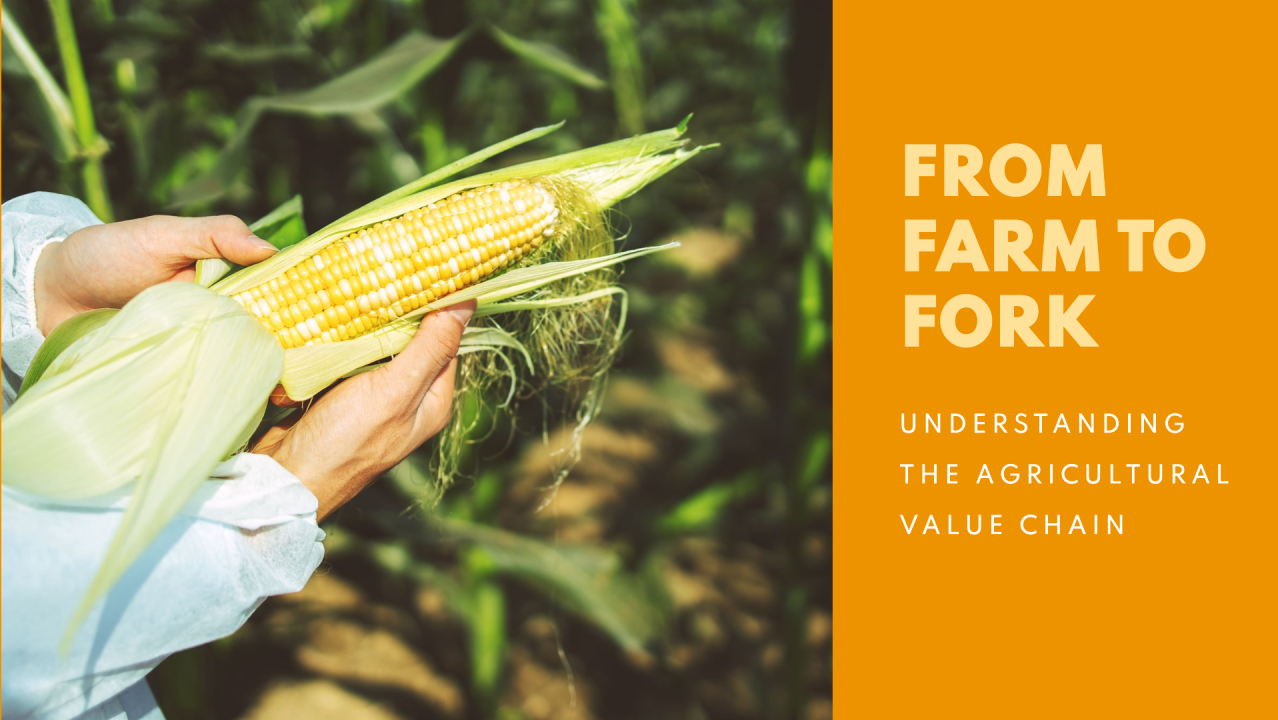Understanding the Agricultural Value Chain: From Farm to Fork
The agricultural value chain in Africa encompasses all the stages involved in bringing agricultural products from the farm to the consumer's table. Each stage is critical in ensuring food security, quality, and sustainability, which are vital for the continent's economic development and well-being.
Overview of the Agricultural Value Chain and Its Components
1. Input Supply
Components: Seeds, fertilizers, pesticides, machinery, and other farming equipment.
Importance: Access to high-quality inputs is essential for successful farming. These inputs influence crop yields, pest resistance, and overall productivity. In Africa, improving access to quality inputs is crucial for increasing agricultural productivity and supporting farmers' livelihoods.
2. Production
Components: Crop cultivation, livestock raising, and aquaculture.
Importance: This stage is the foundation of the agricultural value chain. Implementing efficient and sustainable farming practices leads to higher productivity and better quality produce. In Africa, where smallholder farmers dominate, adopting improved agricultural practices can significantly boost food production and economic stability.
3. Harvesting
Components: Timing of harvest, harvesting techniques, and initial processing (like drying or cleaning).
Importance: Proper harvesting techniques minimize losses and maintain the quality of the produce. In Africa, reducing post-harvest losses through better harvesting methods can significantly increase food availability and farmers' incomes.
4. Post-Harvest Handling
Components: Sorting, grading, packaging, and storage.
Importance: Effective post-harvest handling minimizes spoilage and maintains the quality of the produce. In Africa, where post-harvest losses can be high, improving storage and handling practices is essential for enhancing food security.
5. Processing
Components: Conversion of raw agricultural products into food products (e.g., milling grains into flour, processing milk into cheese).
Importance: Processing adds value to raw agricultural products, making them more suitable for consumption and extending their shelf life. In Africa, developing local processing industries can create jobs and reduce dependence on imported processed foods.
6. Distribution
Components: Transportation, logistics, and supply chain management.
Importance: Efficient distribution systems ensure that food products move swiftly from farms to markets, preserving freshness and quality. In Africa, improving infrastructure and logistics can help reduce transportation costs and improve market access for farmers.
7. Marketing and Retail
Components: Wholesale markets, supermarkets, farmers' markets, and online platforms.
Importance: Effective marketing connects producers with consumers, driving sales and ensuring that produce reaches end-users. In Africa, enhancing market linkages and supporting local markets can improve farmers' incomes and consumer access to fresh produce.
8. Consumption
Components: Food preparation, cooking, and consumption by end-users.
Importance: This stage completes the agricultural value chain. Educating consumers about nutrition, food safety, and sustainable consumption practices helps make informed choices and reduces food waste, contributing to overall food security and health.
In conclusion, by addressing the challenges and leveraging the opportunities within each stage of the agricultural value chain, Africa can achieve a more sustainable, productive, and equitable food system. This comprehensive approach is essential for meeting the growing food demands of the continent and ensuring a prosperous future for its people.
Schedule a life-changing appointment with me.
References:
Food and Agriculture Organization of the United Nations (FAO): Various reports and resources on improving agricultural productivity and sustainability in Africa.
International Fund for Agricultural Development (IFAD): Studies on smallholder farmers and rural development in Africa.
World Bank: Research on agricultural value chains and market systems in Africa.
African Development Bank (AfDB): Publications on enhancing agricultural value chains and infrastructure development in Africa.
